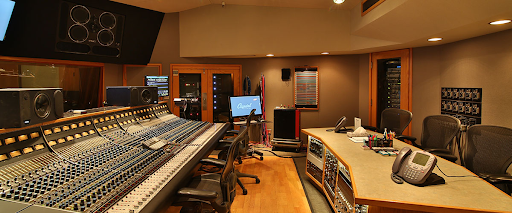How To Build A Professional Recording Studio
- 24KSTUDIOS

- Jul 23, 2021
- 3 min read
Are you considering building a recording studio? Before you can build a studio, there are a few crucial points to think about. A recording studio is used for recording music, sound effects, and voice-overs for commercials, animation, and multilingual soundtrack dubs. A recording studio can also instruct and train people in the audio-engineering skills required to produce professional recordings.

If you are sure to create a professional recording studio, carefully lay out your plans as thoroughly as possible to reach your objectives. Below is a guide from 24kstudios that you can follow when building your recording studio.
Tips For Building A Professional Recording Studio
Purpose
A professional place where people can record, create, mix, and master their music is known as a professional recording studio. Recording studios are frequently rented out to a number of people or artists. Record labels own certain private studios and utilize them to work with their own artists.
In any case, having one's own engineers and technicians operate the studio equipment is an excellent idea. This helps to reduce excessive wear and tear as well as overuse. Large commercial recording studios have pre-approved engineering lists, with some even keeping engineers on retainer for this purpose.
Choose A Location
Consider where you can set your studio. It's one of those things that people overlook because it's so obvious. Because you'll be spending so much time there, it should be as convenient, accessible, and pleasurable as possible.
Setting up a studio that you know you'll be afraid to utilize is simply shooting yourself in the foot. While there is no such thing as the "proper" or "wrong" size for a professional recording studio, what works for one artist may not work for another. An eight-piece band, for example, will require significantly more room than a DJ.
Make sure that when you build your studio, it has a big space that can accommodate not just two people but more than 8 to 10 persons.
Acoustic Treatment
Sound will move outwards from the audio source, bouncing between the flat, hard surfaces of your space. Bass frequencies will pile up in the corners (especially tri-corners) of your room as it bounces. Some of these may re-enter your microphone and degrade the quality of your recording. When mixing and mastering music, it will also change what you hear.

That is why acoustic panels are important when building your recording studio. Acoustic panels absorb frequencies (usually in the mid-to-high range), lowering the amount of echo you would normally hear. Bass traps, which are denser panels made to sit in a corner, accomplish precisely what their name implies.
This may cost you a big amount of money, so make sure that you have the budget for creating your professional recording studio.
Soundproofing
You'll need to block outside noises from being heard and recorded if you want to get the most out of your equipment and produce only professional-quality audio. Fortunately, effective sound insulation allows you to keep your noise inside while without disturbing your neighbors.
There are four methods of soundproofing. You can do it by adding mass, damping noise and vibrations, filling air gaps, and decoupling structures and equipment.
Gear and Equipment
Without the proper gear and equipment, you won't be able to build a professional recording studio setting. A good computer is essential, go with what you know is best. Regardless of your choice, you'll need a Digital Audio Workstation (DAW). You can use this software to record, edit, and mix music on your computer.
Another key piece of professional recording gear is an Audio Interface. This piece of hardware will connect your computer to the rest of your gear and convert analog signals to digital signals. Then we have microphones, which you need to get great studio sound quality.

The microphones you use will be determined by the instruments or vocals you're recording. There is still more equipment that you will need. To learn more, you can read our blog, "The Essential Equipment For Recording Studio."
Make the Room Comfortable
Because your studio is a creative environment where you'll spend a lot of time, it should be calming and ergonomic. Start by adjusting the height of your gear. Ensure that your computer, mouse, mixer, control surface, and more are within your reach and your wrists in a neutral position.
If you have to bend over or crane your body to reach something, it's not in the right place. To avoid eye strain, make sure you have enough lighting. To improve your workflow, keep frequently used objects within easy reach. Decorate the place in such a way that it excites you.
Building A Professional Recording Studio
Have fun customizing your studio now that you've learned how to design a professional recording studio. You'll be spending a lot of time there, so make it as pleasant as possible for yourself and your clients.
However, if you are looking for a professional recording studio to book online, you can check out 24kstudios today.

Comments